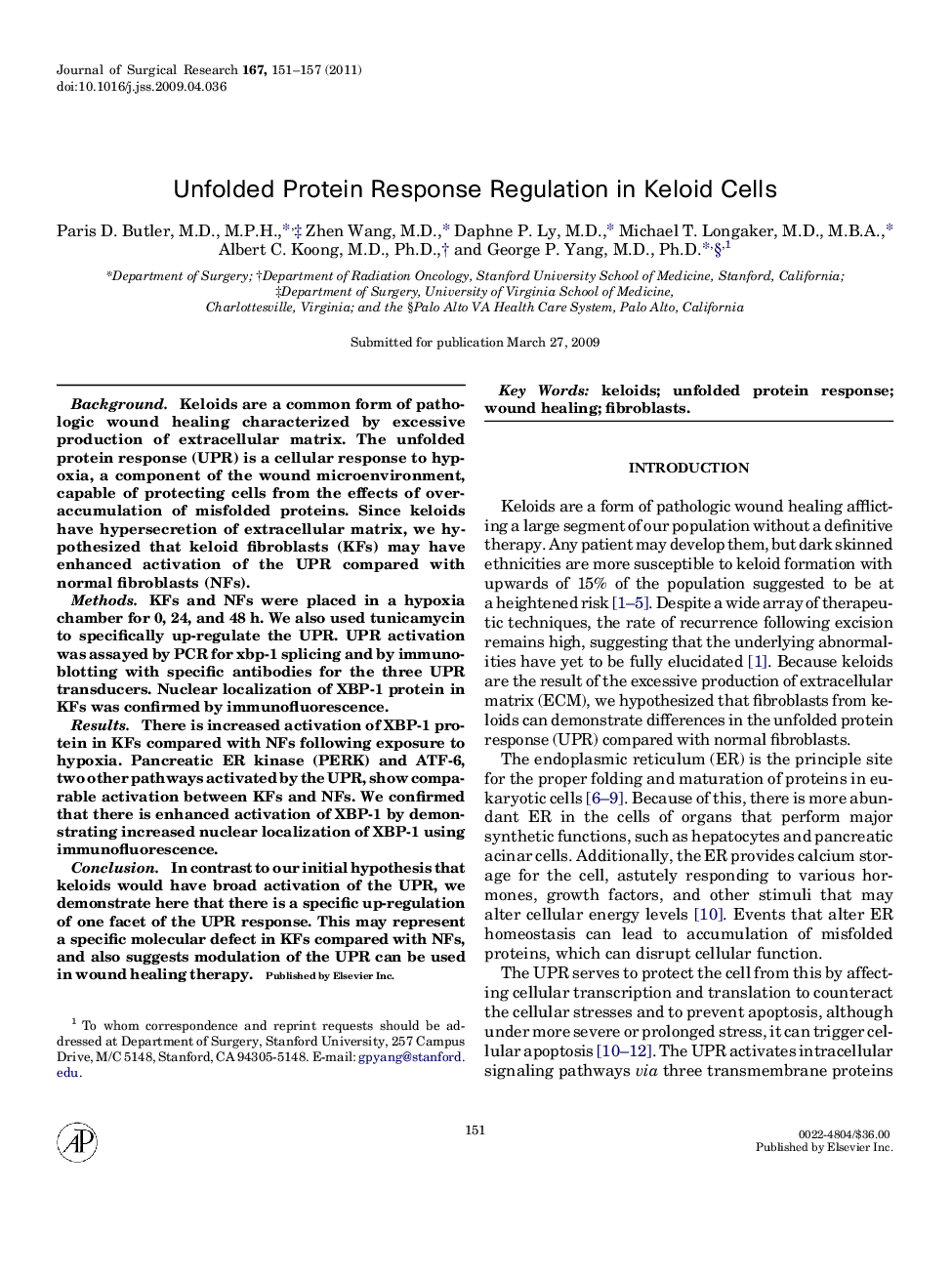| کد مقاله | کد نشریه | سال انتشار | مقاله انگلیسی | نسخه تمام متن |
|---|---|---|---|---|
| 4302844 | 1288464 | 2011 | 7 صفحه PDF | دانلود رایگان |

BackgroundKeloids are a common form of pathologic wound healing characterized by excessive production of extracellular matrix. The unfolded protein response (UPR) is a cellular response to hypoxia, a component of the wound microenvironment, capable of protecting cells from the effects of over-accumulation of misfolded proteins. Since keloids have hypersecretion of extracellular matrix, we hypothesized that keloid fibroblasts (KFs) may have enhanced activation of the UPR compared with normal fibroblasts (NFs).MethodsKFs and NFs were placed in a hypoxia chamber for 0, 24, and 48 h. We also used tunicamycin to specifically up-regulate the UPR. UPR activation was assayed by PCR for xbp-1 splicing and by immunoblotting with specific antibodies for the three UPR transducers. Nuclear localization of XBP-1 protein in KFs was confirmed by immunofluorescence.ResultsThere is increased activation of XBP-1 protein in KFs compared with NFs following exposure to hypoxia. Pancreatic ER kinase (PERK) and ATF-6, two other pathways activated by the UPR, show comparable activation between KFs and NFs. We confirmed that there is enhanced activation of XBP-1 by demonstrating increased nuclear localization of XBP-1 using immunofluorescence.ConclusionIn contrast to our initial hypothesis that keloids would have broad activation of the UPR, we demonstrate here that there is a specific up-regulation of one facet of the UPR response. This may represent a specific molecular defect in KFs compared with NFs, and also suggests modulation of the UPR can be used in wound healing therapy.
Journal: Journal of Surgical Research - Volume 167, Issue 1, 1 May 2011, Pages 151–157